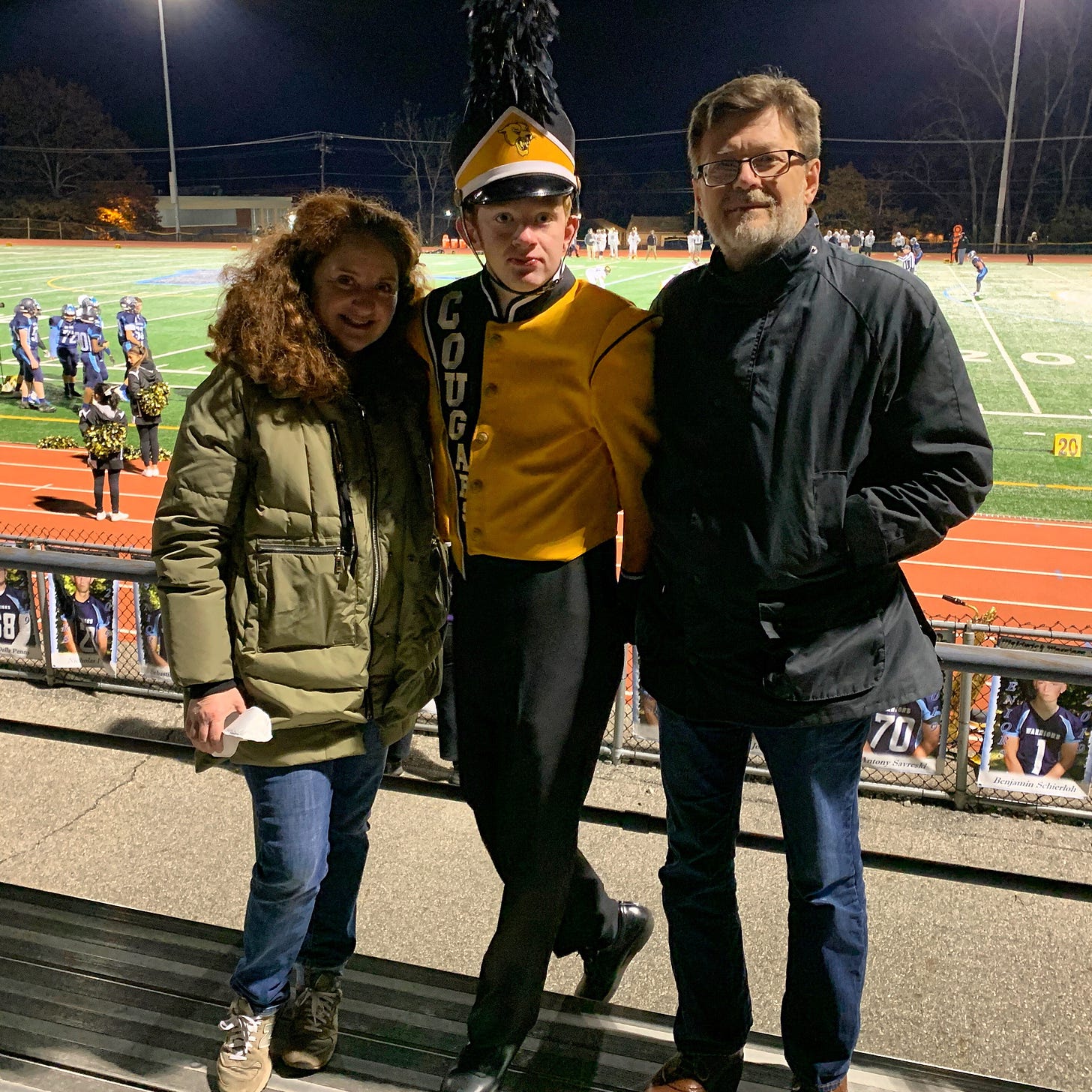As we painted the basement last summer, Jonah began whistling and announced that he was following along to the music in his head. I said, “music in your head?” He explained that he has an endless soundtrack going on his brain all the time and that’s why he constantly listens to music on his headphones. Listening to our conversation, Steve paused rolling out paint long enough to share that he also has an inner music soundtrack.
Surprised by my questions, they asked, “didn’t I listen to music all day, too?” Uh, no. My brain is entirely silent. And I like it that way.
Ian has always had a lot of auditory sensitivities, but when he was in middle school, he developed a new issue. He began screaming or shouting “NO” whenever he heard certain tunes — usually the theme music for old children’s shows. In recent years, he was able to explain that those tunes gave him ear worms, but I didn’t really understand and instead got cross at him for yelling at people. It is really hard to understand every odd autistic behavior.
Steve and Jonah’s discussion opened a larger conversation with Ian, conversations with therapists, and lots of googling. I learned that while Steve and Jonah have a pleasant supermarket-level background music in their head, which keeps them company throughout the day, Ian’s OCD turns up the volume and intensity of the music in his head. It’s loud, repetitive, and painful. And he’s not alone.
There’s a growing body of research and personal essays on Stuck Sound Syndrome. It’s also know known as Broken Record Syndrome and Earworm Syndrome.
Ian’s music talents make him prone to this particular disorder. My cousin, a professional cellist, thinks that Ian has perfect pitch. After I showed him two or three notes on a treble scale when he was 12, Ian figured out the rest on his own. On weekends, he likes to remaster old video game music using some fancy computer technology that I can’t remember and then posts them on YouTube. He was in the school marching band.
Autism has a way of taking talents and warping them, so the talent becomes a burden and makes the individual too odd for typical society. Luckily, Ian can harness his talents enough for some nice weekend hobbies — others can’t even manage that — but Ian’s autism prevents him from taking those talents all the way to Julliard. And that’s okay.
We’re only now really understanding his very unusual problem after almost a decade of distress. Medication helps him a lot. We would rather handle his musical brain without those poisons, so we’re looking for a therapist with this speciality. Some research shows that chewing gum helps get tunes unstuck from the brain, but Ian doesn’t think that will help.
Being a parent of an autistic person means constantly learning new things about them and finding ways to support them. Autism, after all, isn’t just one thing. Autism is an umbrella for a variety of differences, and everyone has a different bucket of issues. For years, we focused on his language deficits. In the past year, we’ve been working on his alexithymia. Next up will be the damn earworms.
LINKS
Personal: Trip to the Bronx Botanical Gardens, Father’s Day. Steve, Ian, and I are heading to Italy on Friday. This newsletter is on break until mid-July.
On my main newsletter, I wrote about our Broken System of Care.
“As he got older, Donald Triplett never stopped having obsessions, speaking mechanically and struggling to hold a conversation. But his life also took a trajectory that would have seemed unimaginable when he was an institutionalized 4-year-old.” Read more about Autism Case 1. Such an inspirational story. I dare you not to cry at the end.
Rebecca Conley argues against using the term “special needs.”






I'm right there with these guys. Sheesh, my radio has quite a diverse playlist. It ranges from nursery-rhyme chants through classic kids' songs to historic pop songs through rock hits of my childhood and adolescence...and then there are some things that I'm pretty convinced I just made up on the fly moments ago.
Thank you for sharing this - this sounds very familiar for my son as well. He can’t tell me if he has songs in his head, but he has always been attracted to music, and has also gone through phases of yelling/refusing if certain songs are played - even some he loved for a long time. More to research for me - thank you!!